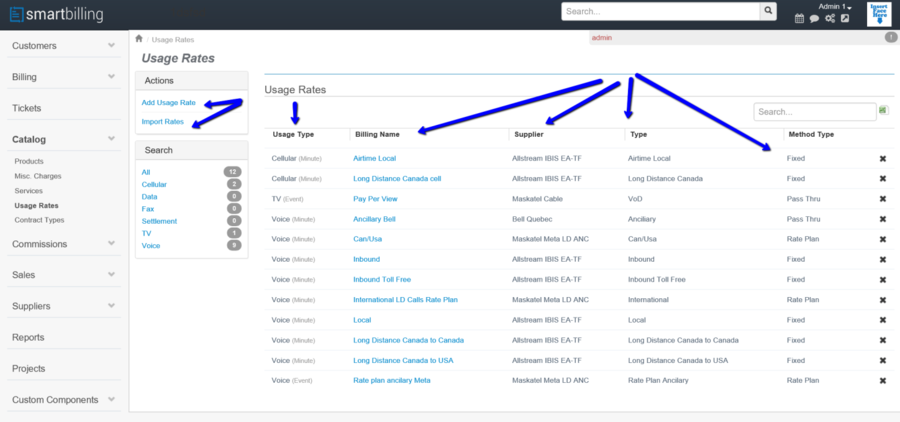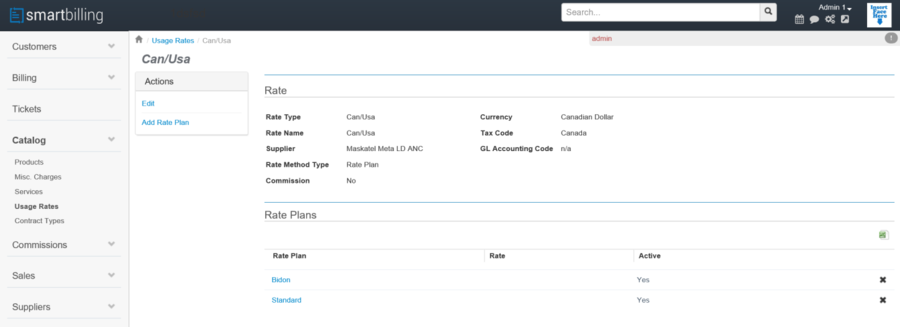Usage Rates
Home FAQ page SmartBilling 5.0
Usage Rates
Usage Rates are among the most important types of charges supported in SmartBilling. They can only be applied within a Subscription and they define how usage transactions related to the subscribed Service are collected, rated and processed.
The calculation associated with a Usage Rate can be selected from one of the following Method Types:
Method Type Description Pass-Through Take the pricing from the usage transaction imported and use the same value to charge the customer. Fixed-Rate The Rate (price), Cost, Minimum/Incremental Intervals (duration) and Included Units (minutes) are specified in the Usage Rate entity. Rate Plan Use a look-up table to determine the rate at which to charge the customer. A field in the Usage Rate will specify the name of the Rate Plan to use. The index into the lookup table will depend upon the type, source (supplier) and format of the usage transaction being processed. (For Outbound International LD calls, the dialed number is the index, and the look-up finds the longest string in the look-up table that matches that number.)
- (Note that Rate Plans contain their own specification for Included Units, so the only Usage Rate Method Type that requires this field is Fixed Rate.)
Examples of Usage Rates include definitions of how to rate transactions like
- call details (per minute, per second, per event, etc.)
- data transfer (per MB, per GB, 95th percentile, etc.)
- meter readings (per liter, per cubic yard, per Kw, etc.)
Usage Rates also include a Supplier parameter, so that when they are linked to a Subscription, SmartBilling can identify the data source from which to collect the Usage Transactions.
There are number of parameters that can be considered when rating usage transactions. For example, when rating usage for mobile phones, any of the following situations can apply:
- Time-of-the-Day: A networks provider may want to charge for calls during the daytime (peak time), at a higher rate, while charging for calls made during the night (off-peak) at a lower rate, because volumes are reduced and network capacity is under-utilized.
- Day-of-the-Week: By the same rationale, calls during the weekend could also be charged at lower prices.
- Surge Pricing: Calls made from specific locations and at certain times (e.g. festivals, holidays, events, etc.) could be charged at special prices.
- Location/Site/Destination Pricing (Roaming): Calls, text messages and/or data usage made to (or from) a particular destination could be charged at premium (or lower) prices, or be free-of-charge (subsidized by the promoter).
- Network Routing: Calls that originate and terminate within the same network (on-net)could be charged at special prices, or be free-of-charge.
- Closed User Groups: Calls within a particular group of subscribers could be charged at special prices, or be free-of-charge.
- Usage Pools: Included usage (airtime, SMS, Data transfer) can be 'shared' within a particular group of subscribers.
SmartBilling provides lots of flexibility to define rules to rate the various types of Usage transactions, and also allows the flexibility of using Rate Plans within the rating calculation.

